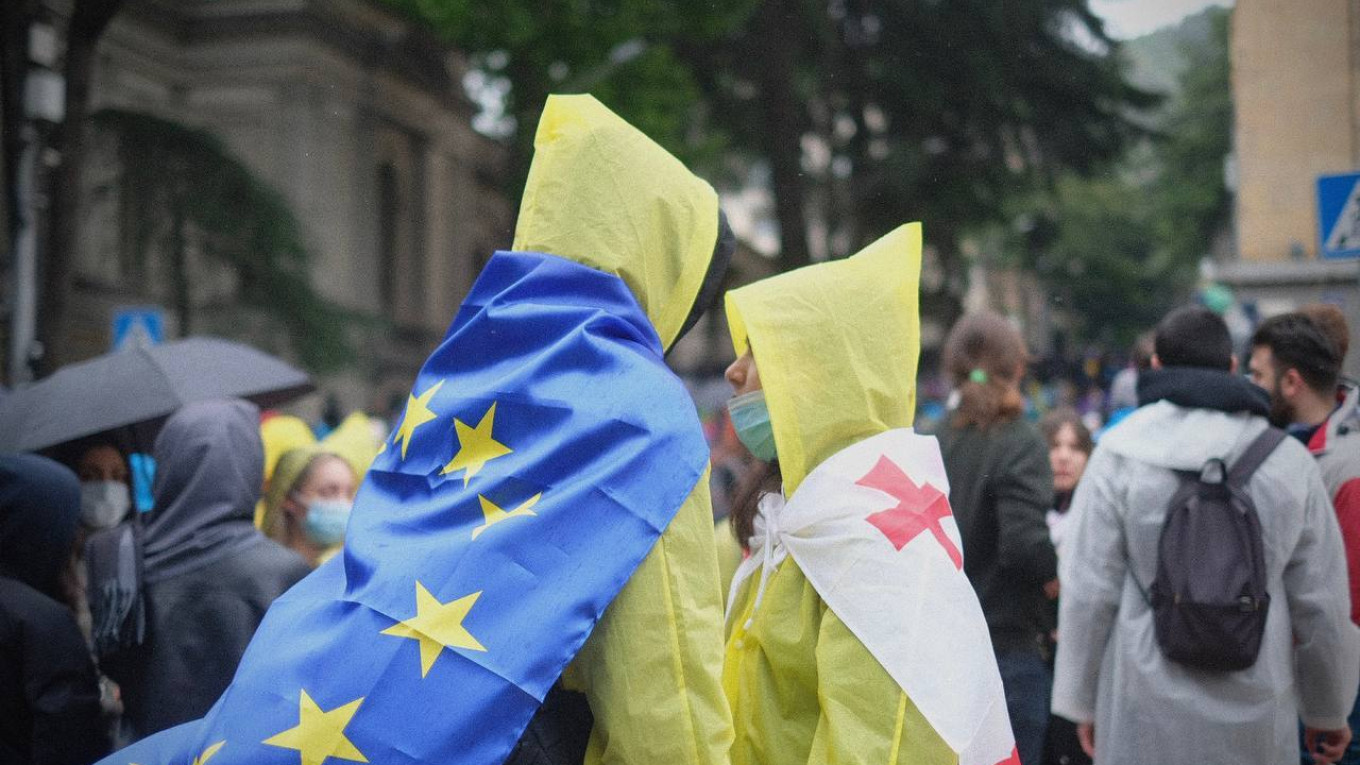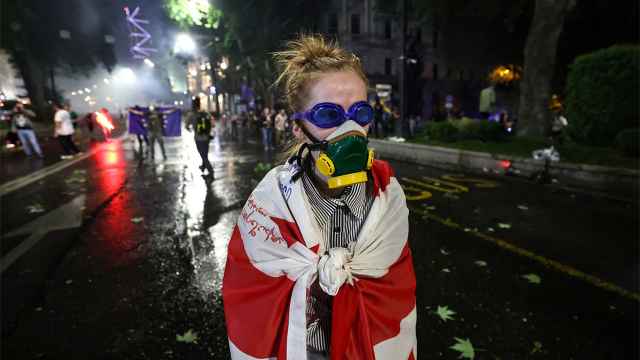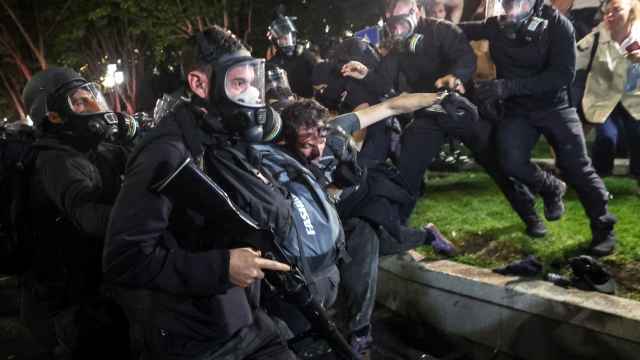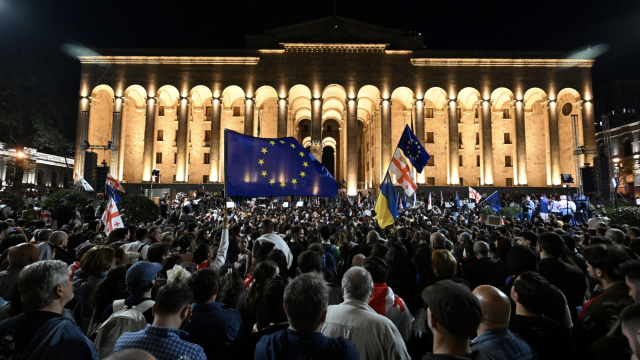TBILISI, Georgia — Georgian lawmakers approved a controversial bill on regulating “foreign influence” in its third and final reading on Tuesday, defying the country’s largest protests in years.
The legislation has plunged the South Caucasus country into a political crisis, with tens of thousands rallying against what they say mirrors Russia’s repressive “foreign agent” law and risks jeopardizing Georgia’s ambitions to join the European Union.
“We protest so that this law is not adopted in Georgia, the law which could destroy the entire democracy of our country,” one of the thousands of protesters who have taken to the streets every day in recent weeks told The Moscow Times after overnight mass protests in Tbilisi on Sunday.
“We fear our government would use it for its own purposes as Russia does,” said the protester, who declined to share his name for fear of reprisals. “This law is not aimed at transparency, but at total control.”
Dozens of protesters were gathered outside the parliament building in central Tbilisi ahead of the vote amid a heavy police presence.
Inside parliament, footage showed a scuffle between Georgian lawmakers.
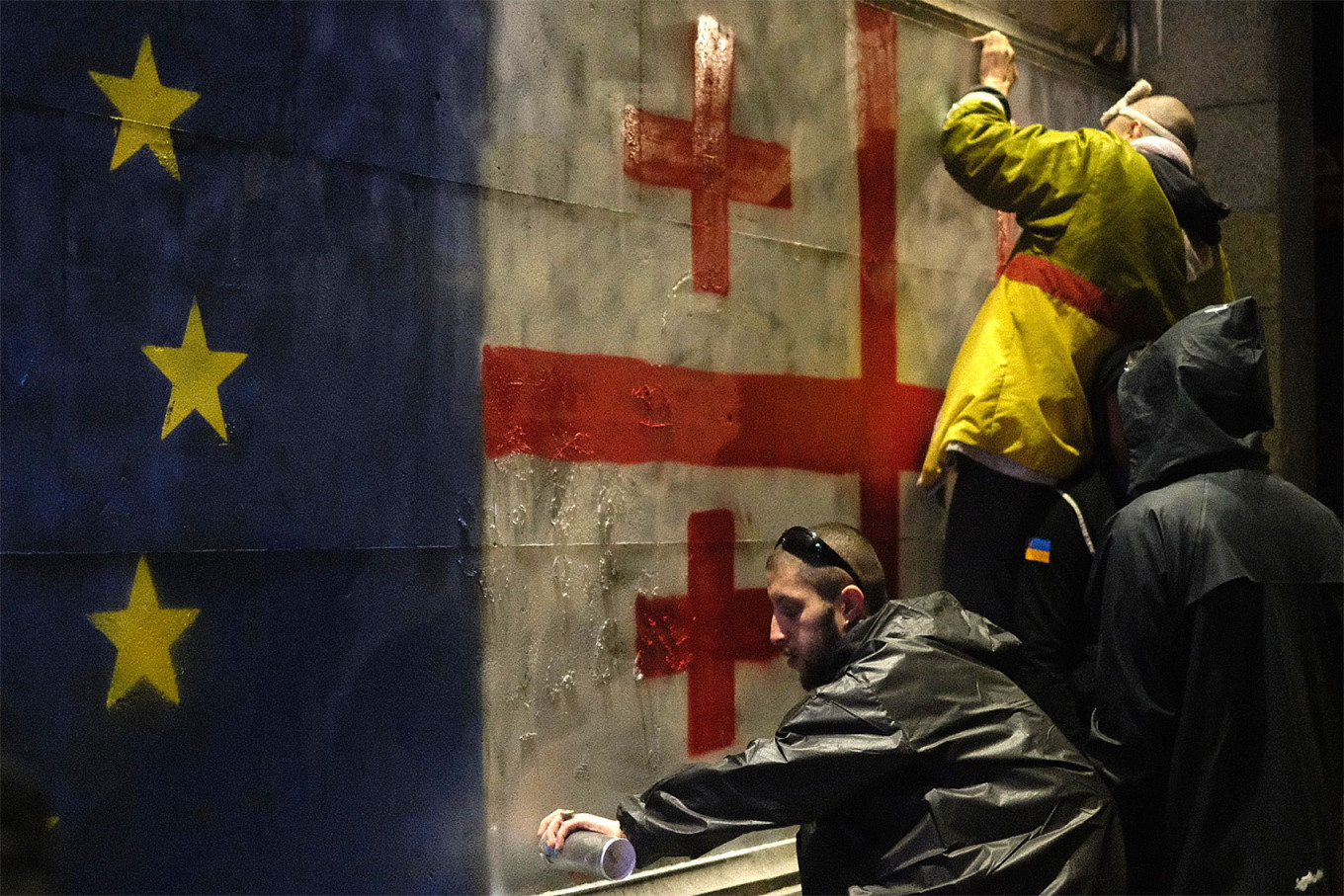
In the lead-up to Tuesday’s parliamentary vote, the protests have evolved from a movement against the bill itself into a wider confrontation between society at large and the government, experts said.
“A large mass of people have become involved, but the protests are not just about the law. In fact, they have to do with Georgia's foreign policy trajectory,” Gela Vasadze, a Tbilisi-based analyst at Georgia's Strategic Analysis Center, told The Moscow Times.
“The main point of the protests today is that people are saying: ‘We don’t want it to be like in Russia’,” Vasadze said.
Despite the mass demonstrations, which have seen dozens detained and widespread footage of brutality against protesters, Prime Minister Irakli Kobakhidze on Monday vowed that lawmakers would pass the “foreign influence” bill.
President Salome Zurabishvili, who is in conflict with the ruling party, has already vowed to veto the law. But the ruling Georgian Dream party, with its majority in parliament, can override a presidential veto without support from any opposition MPs.
The bill passed by Georgian Dream requires NGOs and media outlets receiving over 20% of their funding from abroad to register as entities serving the interests of foreign powers.
Protesters see the law as a threat not only to freedom of speech and Georgia’s civil society but also to the country’s accession to the EU after it received candidate status in November 2023. According to polls, an overwhelming majority of citizens consistently support their country’s bid to join the EU.
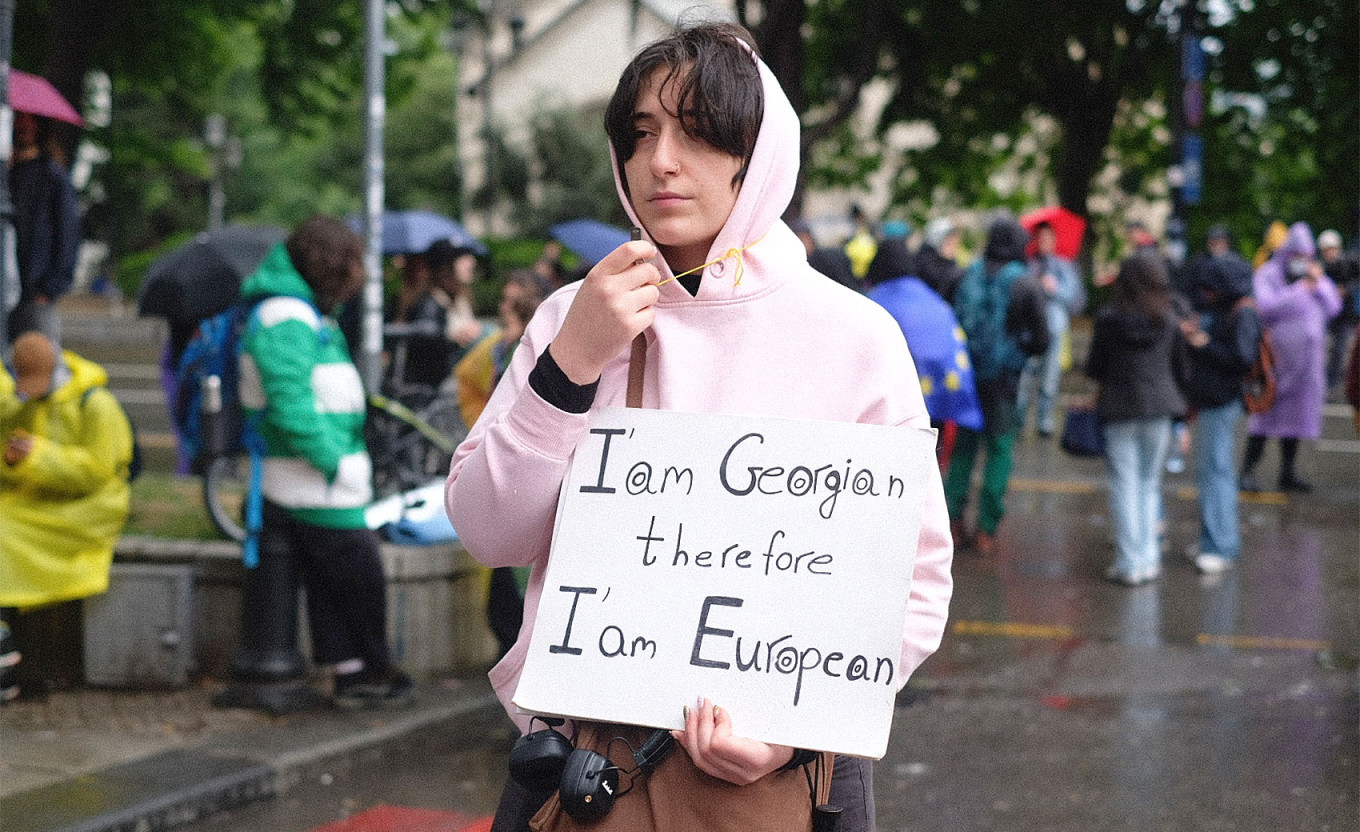
Saturday night saw one of the largest rallies against the law yet, with at least 50,000 people gathering in Tbilisi.
Waving Georgian and EU flags, protesters chanted “Slaves” as they marched past Georgian Dream’s headquarters.
Signs reading “Directed by [Russian President Vladimir] Putin,” “No to Russian law” and “From Tbilisi to Moscow: Georgian voices sing louder than Kremlin whispers” could be seen at the protests.
Some demonstrators also handed out pamphlets at the protests.
“This law is a big Russian wall between Georgia and the European Union,” reads one of the leaflets. “This law establishes in Georgia the same rules that operate in Putin’s Russia and establishes censorship.”
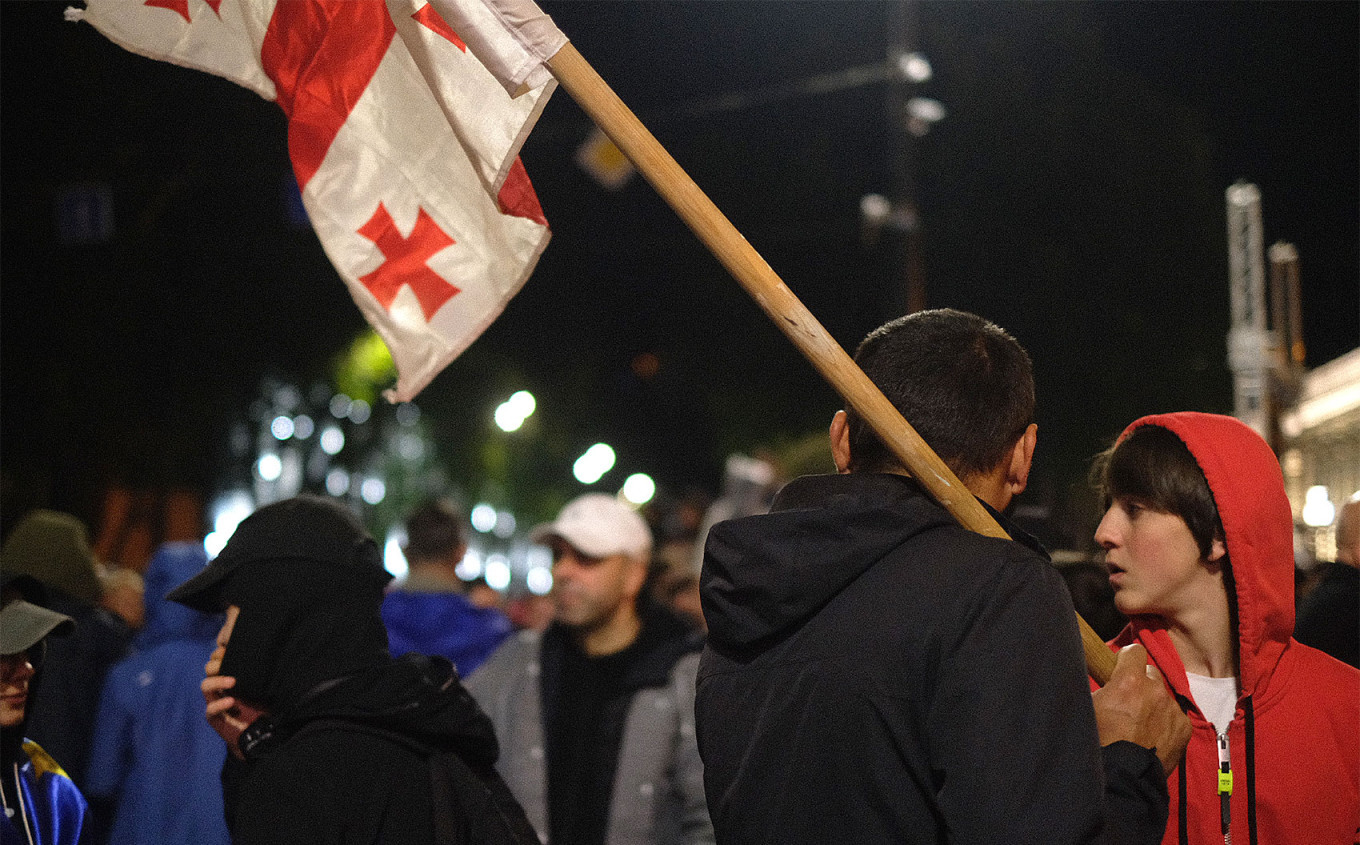
On Sunday, over 100 Georgian NGOs called on lawmakers to withdraw the bill.
“The Georgian people understand the insidious goals of this law, do not yield to the government's attempts to intimidate the population, and steadfastly defend the country's Western course,” the statement read.
Some Russians who relocated to Georgia amid Russia’s intensified crackdown on free speech and civil society are also speaking out against the law.
“I’m not marching with demands against the Georgian government or taking direct actions,” said Russian activist Alexander Sofeyev, a member of the Pussy Riot protest group who moved to Tbilisi in 2021.
“However, when the authorities turned violent, I felt it was crucial to be present and observe everything that was happening,” he continued.
Photos and videos from Monday show riot police brutally detaining protesters who stood outside of the parliament building in downtown Tbilisi.
“Russians are well aware of the consequences that followed the law on ‘foreign agents’ in Russia,” Sofeyev told The Moscow Times in an interview in the Georgian capital. “Since the law was passed in 2012, it has been continuously enforced, becoming increasingly oppressive.”
“So I believe it is important to spread the word about these consequences so that people understand what they are dealing with,” he added.
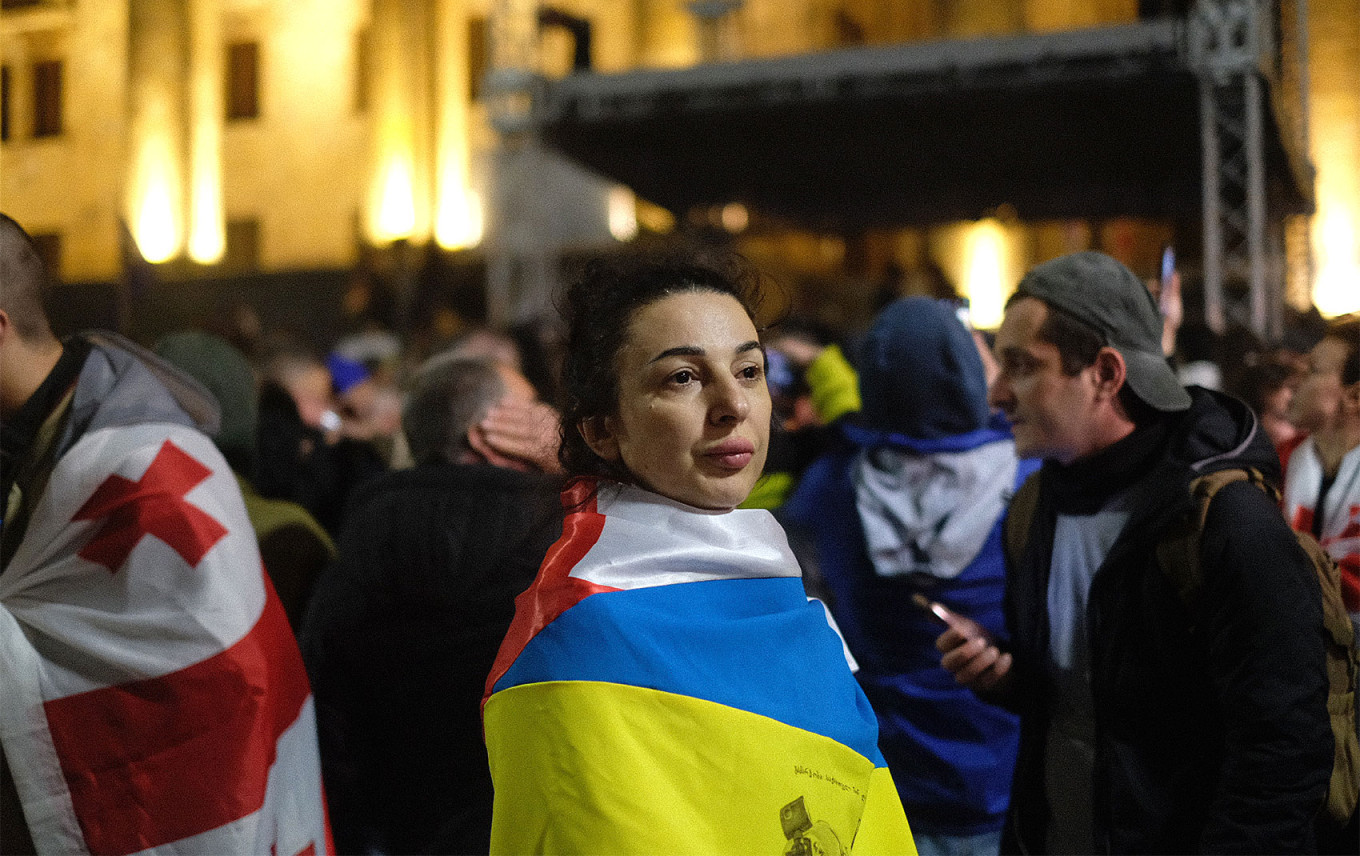
Human Rights Watch said earlier this month that the “foreign influence” legislation “threatens fundamental rights” in Georgia.
“In 2022, the European Court of Human Rights found Russia’s ‘foreign agents’ law, which is similar to the Georgian bill, in violation of Article 11 of the European Convention, protecting the right to association,” the rights group said.
Georgian Dream has denied it is pursuing a pro-Russia policy and maintains that the law is “European because it is based on one of the most important European values — transparency and accountability.”
The party’s founder, billionaire and former primer minister Bidzina Ivanishvili, said last month during a pro-government rally that the West is being run “by the global party of war,” while the “foreign influence” law would aim to resist that alleged threat.
“It is this global force that first forced the confrontation of Georgia with Russia and then put Ukraine in even worse peril,” Ivanishvili said at the rally in front of parliament. “NGOs and radical opposition are acting on their behalf. The laws that we are proposing are there to expose those dark linkages.”
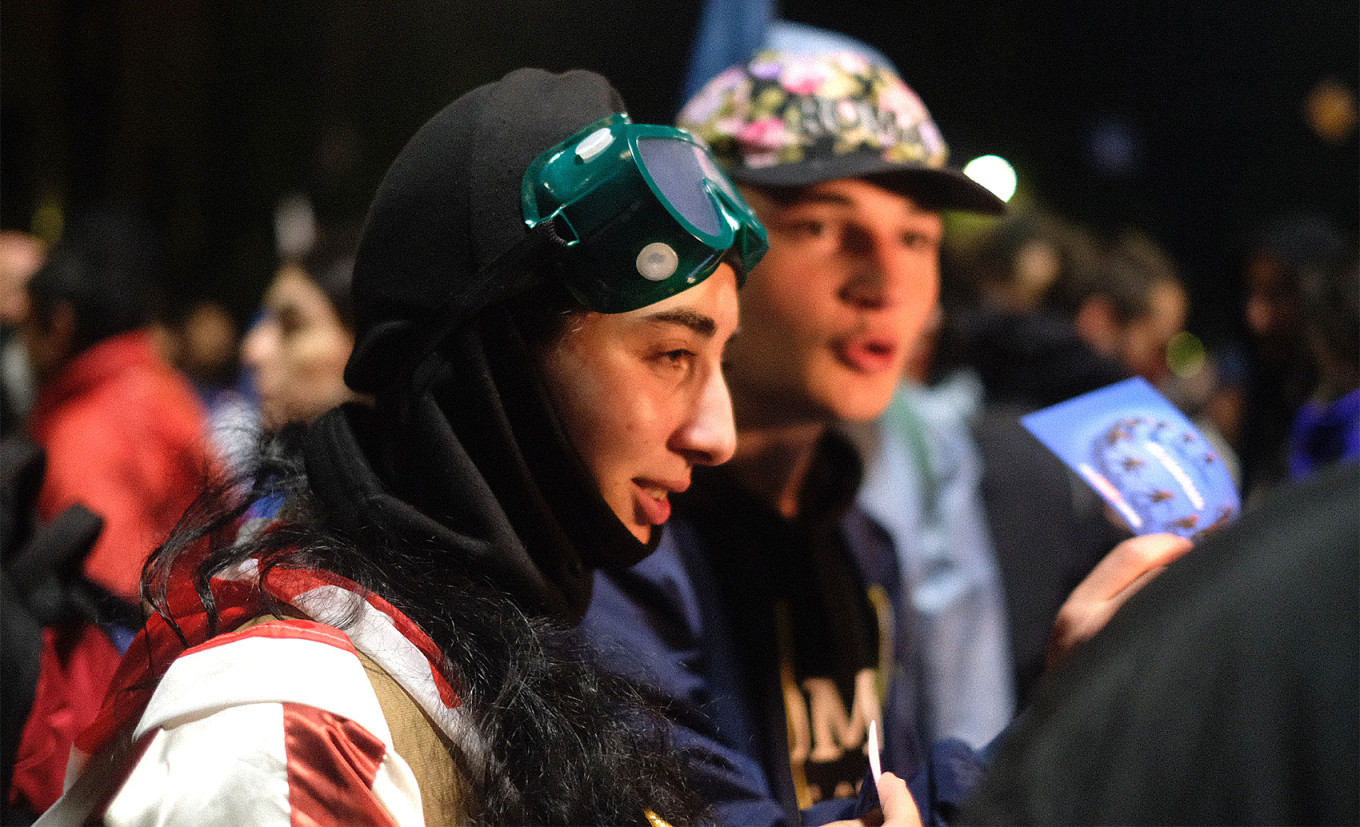
Moscow, meanwhile, has denied that Georgia’s “foreign influence” law was inspired by Russian legislation and suggested that the country’s protests might be orchestrated from abroad.
“We have already said more than once that this [law] is absolutely an internal matter of Georgia,” Kremlin spokesman Dmitry Peskov told reporters on Tuesday. “We in no way want to interfere.”
“We see a strong desire on the part of the Georgian leadership to protect their country against overt interference in its internal affairs,” he said, adding that the authorities in Moscow viewed the recent demonstrations in Tbilisi to be “undisguised interference... from outside.”
According to analyst Vasadze, while Russia is still working to maintain its influence in the South Caucasus — including by keeping its troops in Georgia’s breakaway regions of South Ossetia and Abkhazia — the Georgian “public perceived the law as a possible reversal from the course that Georgia had taken since gaining independence.”
“For Georgia, this means ‘Welcome to the Russian world,’ which cuts off all prospects for Georgia’s development,” Vasadze said. “We will simply have the same rules as in Russia.”
Bidzina Lebanidze, a senior analyst at the Georgian Institute of Politics, said the “foreign influence” legislation is just one example of how the ruling party is trying to establish for itself “a new role or new function for Georgia” in the region, with the possibility of attracting investment from Russia.
Russia “is going to remain a key player in the region and Georgia needs to adapt somehow,” Lebanidze told The Moscow Times.
However, it appears that “Georgian Dream miscalculated the public’s reaction,” he added.
A Message from The Moscow Times:
Dear readers,
We are facing unprecedented challenges. Russia's Prosecutor General's Office has designated The Moscow Times as an "undesirable" organization, criminalizing our work and putting our staff at risk of prosecution. This follows our earlier unjust labeling as a "foreign agent."
These actions are direct attempts to silence independent journalism in Russia. The authorities claim our work "discredits the decisions of the Russian leadership." We see things differently: we strive to provide accurate, unbiased reporting on Russia.
We, the journalists of The Moscow Times, refuse to be silenced. But to continue our work, we need your help.
Your support, no matter how small, makes a world of difference. If you can, please support us monthly starting from just $2. It's quick to set up, and every contribution makes a significant impact.
By supporting The Moscow Times, you're defending open, independent journalism in the face of repression. Thank you for standing with us.
Remind me later.



